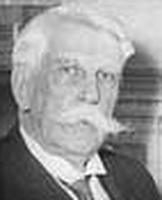|
by Steve Royek The professional football career of Richie Incognito is probably over and he faces a life of being known as the white player who harassed black teammate Jonathan Martin with threatening and racist texts and voice messages. Could he, however, soon be trading in his orange and turquoise Miami Dolphins’ uniform for an orange prison jumpsuit?  Oliver Wendell Holmes, Jr. Oliver Wendell Holmes, Jr. If Oliver Wendell Holmes Jr. had his way, he just might. Of all the names swirling around this sad, salacious scandal of language-based threats and violent rhetoric, one of the most interesting might be that of the former U.S. Supreme Court justice. Holmes authored the landmark 1919 “Schenck v. United States” opinion that set legal guidelines for violent speech with the often-quoted “shouting fire in a theatre” analogy. “Schenck” was the first high court ruling to carve out an exception to the once-absolute Freedom of Speech protection in the Bill of Rights. Over the years, those exceptions have been crystalized into a three-part test of protected violent speech: Is there intent to commit a violent act, is that action imminent, and is there a strong likelihood the act will be carried out? All three of these tests appear to have been met in the Incognito affair, which opens up the player to criminal charges of terroristic threats. As it applies to language-based harassment, violent rhetoric ups the ante of the classic persuasive rhetoric techniques employed throughout ancient Greek and Roman society. Using speech to incite violence or to intimidate and dominate others was a key to the rise of Adolf Hitler and Nazism and has been Incognito’s modus operandi throughout his college and professional football career. Some fans and members of the media have tried to dismiss this threatening speech as part of the game, writing it off as the words of violent men who play a violent game or even defending it as motivational and an effective team building technique. However, when the language being used includes graphic death threats and visceral racial epitaphs, it clearly crosses the line from acceptable to abhorrent.
In Incognito’s case, the Miami Herald reports a high-level Dolphins source as saying he never will play another game with the team and USA TODAY quotes a personnel director from another team as saying Incognito should “file his retirement papers” to end his career. He also potentially faces a lifetime ban from the NFL for violating the league’s Personal Conduct Policy which outlaws “violent or threatening behavior” and “conduct that imposes inherent danger” to another person. With regard to Martin, both NFL.com and CNN say it is unclear whether he even wants to play professional football again, rendering moot the question of whether or not he would be picked up by another team.  Jonathan Martin Jonathan Martin Despite the similarity of their on-the-field football responsibilities – both Incognito and Martin protect quarterbacks and open holes for running backs – the two individuals could not have had more dissimilar paths to the professional game. Martin was an honors student who earned a degree in ancient Greek and Roman classics at Stanford University. He had been accepted to graduate school at Harvard before being drafted in April 2012 by the Dolphins. After playing sparingly his rookie year, he had worked his way into the starting lineup this season before taking his leave. Teammates describe him as shy and introverted. Incognito has been disciplined or released by every one of his college and professional teams. After three suspensions in three years at the University of Nebraska – including one that involved an assault conviction, he transferred to the University of Oregon and lasted a week before being cut. He does not have a college degree.
In four years with the NFL’s St. Louis Rams, Incognito was charged with 38 unsportsmanlike conduct penalties – the most of any player in the league – and was dropped from the team in 2009 after verbally abusing his head coach during a game. He then signed with the Buffalo Bills, was released three weeks later for behavioral issues, and signed with the Dolphins. Other than his Nebraska assault conviction, Incognito only has faced team and league sanctions for his actions. Thanks to the famous legal opinion penned by Justice Holmes nearly 100 years ago though, the left guard could be with prison guards in the near future. Holmes produced one of the most familiar lines in Supreme Court history when he wrote the majority opinion in "Schenck v. United States” that said: “The most stringent protection of free speech would not protect a man in falsely shouting fire in a theatre and causing a panic. . . The question . . . is whether the words used . . . create a clear and present danger.” The 1919 high court decision upheld the sedition conviction of Socialist Party leader Charles Schenck for distributing leaflets urging World War I draftees to resist and soldiers to desert and carries obvious parallels to the Dolphins situation. Using Holmes’ logic, it follows in this instance that shouting the N-word in a phone message is not protected speech either. Without question, a word that evokes thoughts of cross burning and lynching, used in connection with the phrase “I’ll kill you,” is a clear and present danger. The circumstances surrounding which words are judged to be violent rhetoric were further defined by the Court 50 years after“Schenck” in “Brandenburg v. Ohio.” In this 1969 case, which overturned a lower court conviction of Cincinnati Ku Klux Klan member Clarence Brandenburg for advocating violence, the court refocused “clear and present danger” as “imminent lawless action” and set up the three tests of intent, imminence, and likelihood. In the Dolphins issue, a reasonable person could conclude the phrase “I’ll kill you” combined with the N-word in a phone message left for a black man, indicates “imminent lawless action.” When viewed against the backdrop of his multiple suspensions related to violent rhetoric, and his assault conviction, the intent, imminence and likelihood of Incognito carrying out his threat appear to be very real. His speech is not protected and Incognito clearly can be charged with making terroristic threats. This is defined as speech in which a person threatens to commit a crime that would reasonably result in death, terror, serious injury or serious physical property damage. Children, when faced with a playground taunt, often chant the phrase “sticks and stones may break my bones, but names will never hurt me.” However, there’s nothing childish about Richie Incognito’s threat to kill Jonathan Martin. Mr. Incognito might want to find a good attorney, maybe one who studied Holmes in law school.
0 Comments
Leave a Reply. |
Archives
July 2024
Categories
All
|
|
Glassworks is a publication of Rowan University's Master of Arts in Writing 260 Victoria Street • Glassboro, New Jersey 08028 [email protected] |
All Content on this Site (c) 2024 Glassworks
|


 RSS Feed
RSS Feed
